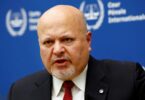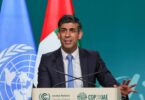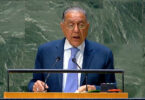Monitoring Desk
NEW DELHI: The Supreme Court of India on Friday deferred the hearing of the case on the decades-old Babri Mosque dispute between Muslims and Hindus, local media reported.
According to the Press Trust of India, a local news agency, a bench comprising Chief Justice Ranjan Gogoi and Justice SK Kaul said a three-member bench will fix the date of hearing of the case on Jan. 10.
“Further orders will be passed by an appropriate bench on January 10 for fixing the date for hearing the matter.”
In December 1992, Hindus gathered at the disputed site and destroyed the 16th-century mosque named after Mughal Emperor Babur. The destruction sparked nationwide riots that left around 2,000 people dead.
The dispute between Hindus and Muslims has resulted in thousands of deaths over the years.
Muslims demand a new mosque at the site, while Hindus claim that this was where their god Ram was born, demanding instead a temple at the site.
The three-member bench of the apex court will hear the case in which as many as 14 appeals were filed against the 2010 Allahabad High Court’s judgment.
In September 2010, the Allahabad High Court ruled that two-thirds of the disputed site would be handed over to Hindu groups, while the remaining area would be given to Muslims.
Right-wing groups in India have been demanding the government to propose in parliament the construction of a temple at the disputed site in Ayodhya in Uttar Pradesh.
On Tuesday, Indian Prime Minister Narendra Modi said any decision in this regard would be considered only after the legal process is over.
– Babri Mosque dispute
The Babri Mosque is said to have been built by Mughal Emperor Babur in 1526.
In 1885, a Hindu religious body filed a case in Faizabad court asking for permission to construct a temple to honor Ram inside the premises of the Babri Mosque. The permission was denied.
In 1949, a group of Hindus entered the premises of the mosque and installed an idol of Ram there. The idol was not removed and it was locked by the administration. However, an official and a Hindu priest were given charge to look after the place.
In 1986, the district administration of Faizabad, under which Ayodhya city comes, opened the premises to Hindus, allowing them to carry out their rituals.
The situation remained calm until December 1992, when thousands of activists belonging to extremist Hindu groups and political parties along with BJP leaders entered Babri Mosque and demolished it.
The case over the dispute has been languishing in India’s legal system for years without any final outcome. The Indian Supreme Court, which is now hearing the case, has set the next date of hearing in January 2019. (AA)






